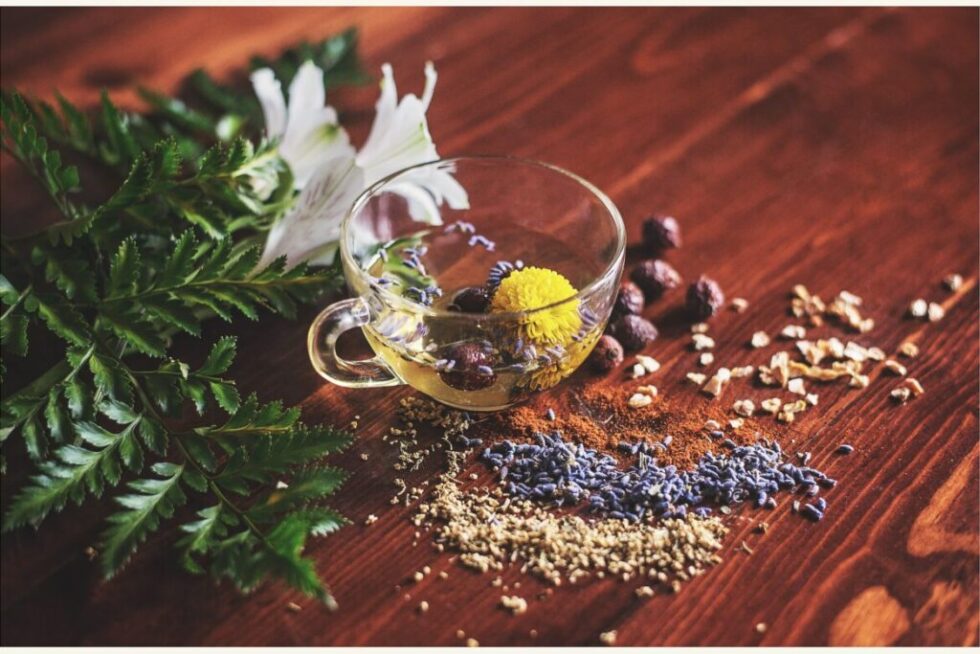Natural tea – headaches are one of the most frequent health complaints worldwide. They affect concentration, productivity and overall quality of life. While painkillers can bring quick relief, they often come with side effects if used too frequently. For this reason, more and more people are turning to herbal teas as a natural and safe alternative to manage pain and improve well-being.
For this reason, many people turn to natural alternatives. Herbal teas in particular have a long tradition in folk medicine and are increasingly supported by modern research. They contain plant compounds that can relax the nervous system, improve blood flow, reduce inflammation and calm stress – all crucial factors when dealing with headaches, as noted by G.business.
Bay leaf and peppermint – calming the nervous system
Bay leaf tea is less well-known, but its essential oils have proven calming and antispasmodic properties. It supports relaxation of the neck and shoulder muscles, improves circulation and can reduce tension headaches. In addition, bay leaves contain antioxidants that support vascular health, which may indirectly ease headache intensity.
Medical advice: Steep 2–3 dried bay leaves in hot water for 10 minutes. Drink one cup in the evening. Avoid during pregnancy or kidney disease.
Peppermint tea is one of the best-researched natural remedies for headaches. Menthol relaxes smooth muscles, dilates blood vessels and improves oxygen supply to the brain. Clinical studies show that peppermint oil applied to the temples can relieve tension headaches within 15 minutes.
Medical advice: Drink peppermint tea at the first signs of headache. Combine with inhaling the steam and applying a cool peppermint compress on the forehead for stronger effect.
Ginger, chamomile and lemon balm – natural pain relief
Ginger tea is rich in gingerol, a compound with anti-inflammatory and anti-nausea effects. It reduces the release of prostaglandins, which are pain-causing messengers, making it especially effective for migraines. It also helps against nausea, dizziness and light sensitivity.
Medical advice: Use fresh ginger slices boiled for 5–7 minutes. For prevention, drink in the morning. For acute migraine, combine with magnesium-rich food such as nuts.
Chamomile tea is famous for its calming effect. Apigenin, one of its bioactive substances, binds to receptors in the brain and promotes relaxation. It reduces cramps and stabilises the nervous system, which helps when headaches are triggered by stress.
Medical advice: Drink 1–2 cups of chamomile tea in the evening. It is especially effective in combination with a short walk or meditation before bedtime.
Lemon balm tea lowers cortisol levels and calms the nervous system. It is ideal when headaches are linked to anxiety, tension or overstimulation. Its mild sedative effect also improves sleep quality.
Medical advice: Replace afternoon coffee with lemon balm tea to avoid caffeine-triggered headaches. Drink up to 3 cups daily during stressful periods.
Lavender and turmeric – modern favourites against stress and inflammation
Lavender tea is one of the most effective natural stress reducers. Its aroma reduces stress hormone levels and its compounds help the brain enter a state of relaxation. For people with stress-induced headaches or insomnia, lavender is a gentle but powerful solution.
Medical advice: Brew lavender flowers for 5 minutes. Drink before bed or during high-stress situations. Combine with deep breathing or aromatherapy for maximum effect.
Turmeric tea contains curcumin, a strong anti-inflammatory and antioxidant. It improves blood circulation and lowers inflammation in blood vessels, which is relevant for migraine prevention. Studies show that curcumin can reduce the frequency of migraines when taken regularly.
Medical advice: Always combine turmeric with black pepper, which increases curcumin absorption. Prepare it with warm plant-based milk (“golden milk”) and drink daily for prevention.
How to use herbal teas effectively
While teas can help with mild and moderate headaches, their effect is individual and gradual. For best results, they should be combined with a healthy lifestyle.
Medical guidelines:
- Drink 1–3 cups daily, depending on the tea and personal tolerance.
- Avoid drinks high in caffeine or histamine if they worsen your symptoms.
- Keep a headache diary to identify which teas work best for you.
- Combine tea with hydration, balanced diet, stretching and good sleep hygiene.
- Seek medical advice if headaches occur more than 15 days per month – this may indicate chronic migraine.
Practical overview: teas and their effects
| Type of tea | Main effect on headaches | Best for | Extra advice |
|---|---|---|---|
| Bay leaf | Relaxes muscles, improves circulation | Tension headaches | Avoid in pregnancy |
| Peppermint | Menthol relaxes vessels and muscles | Migraines, tension headaches | Inhale steam while drinking |
| Ginger | Anti-inflammatory, reduces nausea | Migraines with nausea | Combine with lemon and honey |
| Chamomile | Calms nerves, reduces cramps | Stress-related headaches | Drink before bedtime |
| Lemon balm | Lowers cortisol, eases anxiety | Anxiety-induced headaches | Replace coffee with lemon balm |
| Lavender | Reduces stress hormones, relaxes | Stress headaches, insomnia | Combine with breathing exercises |
| Turmeric | Anti-inflammatory, improves blood flow | Chronic migraines, prevention | Always add black pepper |
The role of herbal teas in long-term headache management
Herbal teas cannot completely replace medication, but they are a safe and natural option to manage headaches and reduce their frequency. They provide more than symptom relief: they support the nervous system, improve circulation, and help balance stress and sleep. Regular use in combination with lifestyle adjustments can significantly improve quality of life.
Key recommendation: use teas not only in acute pain situations but also preventively. This creates a healthy daily routine where natural remedies support long-term stability and resilience against headaches.
Stay connected for news that works — timely, factual, and free from opinion. Learn more about this topic and related developments here: How to Use Rosemary: Health Benefits, Culinary Tips, Oil & Growing Guide
